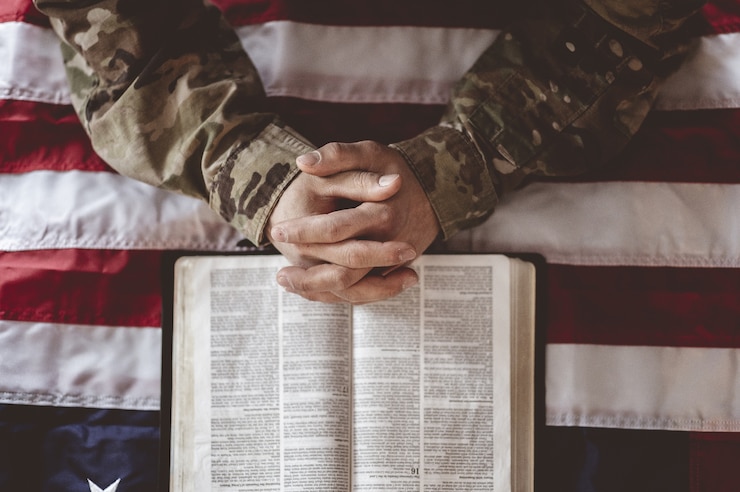Famous battles, valiant soldiers, and significant dates are frequently the first things that come to mind when we think of the American Civil War. But what if we took a closer look? What if we investigated the inner lives of those who experienced it—their convictions, aspirations, anxieties, and sense of belonging to something greater than themselves?
We will discuss Civil War history and spirituality today. It’s about realizing that this pivotal period in American history involved more than just conflicts between armies. People’s spiritual beliefs were also put to the test, reinforced, and significantly influenced during this time. We can learn some unexpected lessons for our own lives today by examining this aspect of the conflict. Author Douglas of Mystery
These Aren’t Just War Stories
Civil War history and spirituality books do a great job of telling us what happened. But to truly understand a time like the Civil War, we need to think about the who and the why. The people involved – from farmers to generals, from abolitionists to plantation owners – were all guided by their own beliefs, including their spiritual ones.
Many people’s faith was the focal point of their lives, not just a minor aspect. It helped them make decisions, confront their fears, and find solace in unspeakable suffering.
Faith in the Trenches and Homes
Consider serving in the Civil War. Being away from home, in continual danger, and witnessing unthinkable things. Where would you get your strength? Spiritual faith was a pillar of support for many soldiers on both sides.
They wrote letters home discussing God’s will, carried little Bibles, and prayed together in the camps. Chaplains, or preachers, were right there with them, providing sermons and consolation. Families gathered in churches back home to hold prayer meetings and ask God to help them and their loved ones. Their faith was vital to their survival and hope, not merely a habit.
The Big Moral Questions
Slavery and other significant moral issues were at the heart of the Civil War, which was not just about territory or power. Fighting to abolish slavery was seen by many in the North as a spiritual obligation and a defense of what they saw as God’s justice. Slavery was viewed by them as a sin against humanity.
However, a lot of people in the South also supported their way of life, including slavery, by citing their religious convictions. This demonstrates how intricate and individualized spiritual concepts can be, even causing individuals to engage in bitter conflict while both thinking they were on the correct course. These were extremely difficult moral conflicts that people fought in their own hearts and minds.
Finding Hope in Hardship
The Civil War caused a great deal of suffering. So much land was destroyed, so many lives were lost, and so many families were devastated. People naturally sought meaning in the face of such excruciating pain. “Why is this happening?” and “Can anything good come from this?” they questioned.
Many turned to their spiritual beliefs for answers. They may have viewed the war as a divine test, a retribution for the nation’s transgressions, or a painful but essential step toward a brighter future for the United States. Even in the midst of their grief, discovering this deeper spiritual meaning gave them the strength to rebuild their lives and their nation.
After the Fighting Stopped
The physical war came to an end when the cannons finally stopped firing. However, the spiritual healing and deeper work were only getting started. There was more to this than merely signing peace agreements. After such a savage split, it was about learning to live as a single country once more, forgiving one another, and repairing damaged trust.
It took generations for this spiritual healing to occur, and it continues to this day. It serves as a reminder that genuine peace frequently necessitates more than just political agreements—it frequently involves profound spiritual work of understanding and forgiveness.
Lessons for Today’s World
You might wonder, “How does this old Civil War history and spirituality connect to me?” Well, the spiritual lessons from the Civil War are timeless. They show us:
- How people’s faith can sustain them through extraordinary adversity.
- How people and societies struggle with difficult moral decisions.
- That despite intense suffering and division, there is always a path to harmony and peace, frequently via spiritual insight.
Whether they are personal hardships or more significant issues affecting our communities and the wider world, these insights can help us better understand our current struggles.
Author Douglas Norman’s Book Explores Deeper Truths
Speaking of connection with the Civil War history and spirituality, Author Douglas Norman offers a truly special perspective in his book, “A Gift of Remembrance: Personal Growth through Past Life Exploration.” Norman’s work goes beyond the usual historical accounts to explore how the powerful feelings and experiences from a time like the Civil War can still touch us today, perhaps even through connections to past lives. His book beautifully shows how understanding these echoes from Civil War history and spirituality can lead to deep self-discovery, a greater spiritual understanding, and a more peaceful and meaningful life right now.




